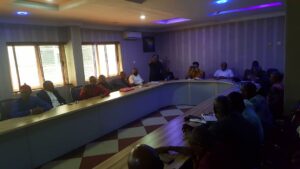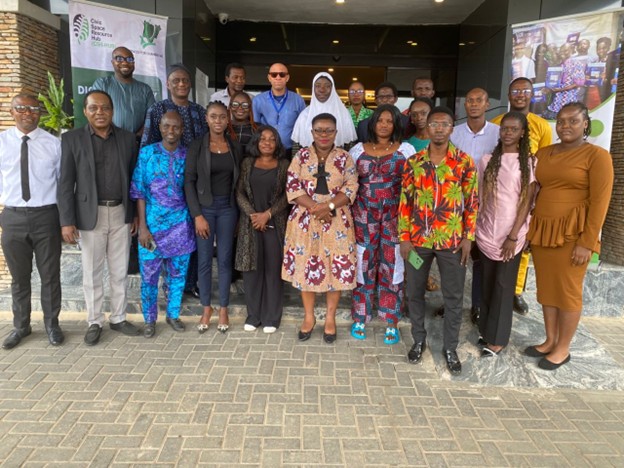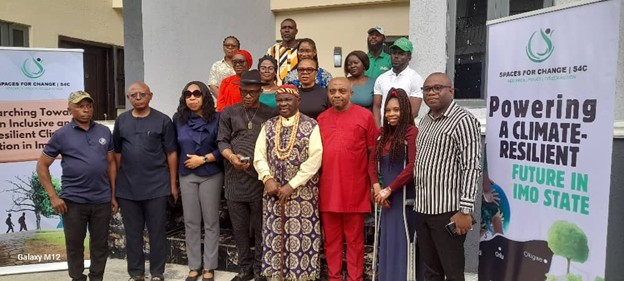Days after Ilile community staged peaceful protests against the worrying operations of Sterling Global Oil Resources Ltd., the company is beginning to take steps to initiate consultations with local communities that will be potentially affected by their extractive projects in Ohaji\Egbema Local Government Area of Imo State. Empowered by S4C’s legal empowerment and capacity-building initiatives, representatives of Ilile Community met with the executives of Sterling Global Oil Resources Ltd. on February 26, demanding greater transparency in land negotiations and meaningful opportunities to participate and benefit from mineral resources extracted in their own vineyard. As the legal representatives of Ilile community, Spaces for Change was present at the meeting.
The meeting afforded local leaders an opportunity to state the grievances that led to the protest earlier in the week. Four issues dominated discussions at the February 26 meeting attended by sixty representatives of Ilile community and Sterling Global Oil Resources Ltd. They include: (a) the transparency of the land negotiations, especially the parameters for the determination of land value and livelihood losses; (b) outstanding remittances and payments for land and agricultural losses; (c) the lack of adequate community consultations and information disclosure and (d) the establishment of adequate community consultative mechanisms.
Sterling Global Oil Resources Ltd. has obtained an oil prospecting licence from the Nigerian government to explore oil and gas minerals in the community. Local leaders expressed deep concern about the sudden commencement of oil exploration without adequate notification and engagement with the inhabitants of the area. Sterling Global’s community consultation processes do not only fall short, but also short-changes landowners in the negotiation and valuation of land acquired for the extractive projects. Community representatives roundly rejected the few selected Lands’ Committee members allegedly handpicked by the company. Poorly-negotiated land prices, selective payment for landowners and access road owners, and the exclusion of certain landholders in the payment schemes, top the list of reasons fueling tension in the community. Local farmers whose lands, crops and economic trees have been destroyed still await compensation. Not only that, the total expanse of land required for the project remains unclear while the modalities for land valuation are completely shrouded in confusion and mystery. Finally, the company’s proposal for a 30-year land lease was rejected by the community, with calls for a downward review renting the air.
On the other hand, company representatives insist that the land acquisition and valuation processes have been fair and transparent. They claim the community leaders and all landowners were carried along in the process through the company’s legal adviser who prepared the land transfer documents (Power of Attorney and indemnity agreements) which landlords signed after agreeing to the discussed prices. Local leaders denied these claims and demanded proof of these transactions from the company. It is expected that the company will provide proof of these land negotiations, discussions, agreements, payments including the evidence of land transfers in subsequent meetings. In addition, the oil company representatives are to provide evidence that an Environmental Impact Assessment (EIA) has been carried out in respect of the project.
Although no resolutions emerged and conclusions were reached between parties after the meeting, the robust company-community consultations represent a departure from past trends when companies commenced exploration activities without due process and without meaningful consultation with indigenous communities. An early-stage consultation helps to resolve conflicts on time, and in good faith, enabling a climate of confidence to be entrenched in extractive activities. With this new climate of community engagement, it is no longer business as usual for corporations to relegate communities at the bargaining table of extractive resource management.




